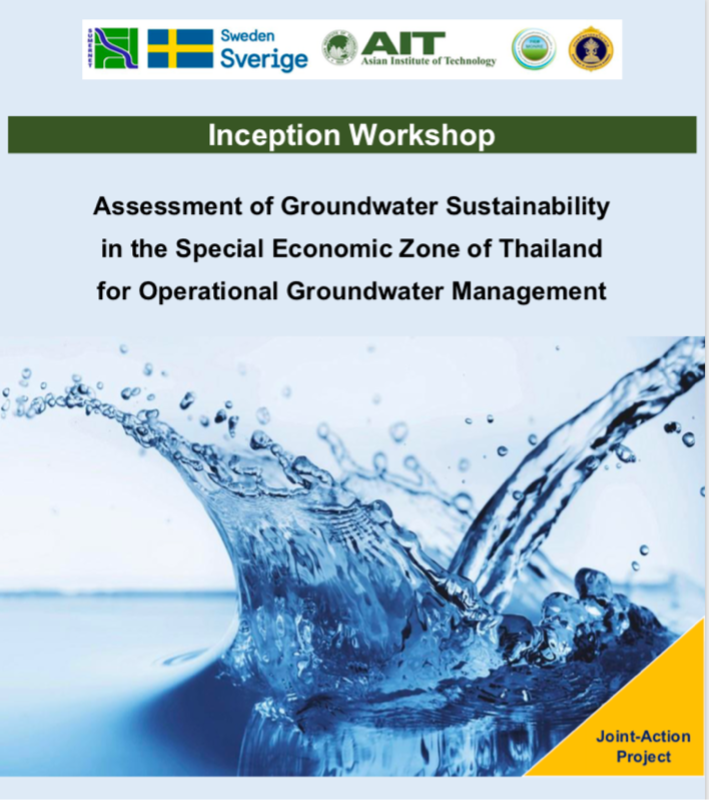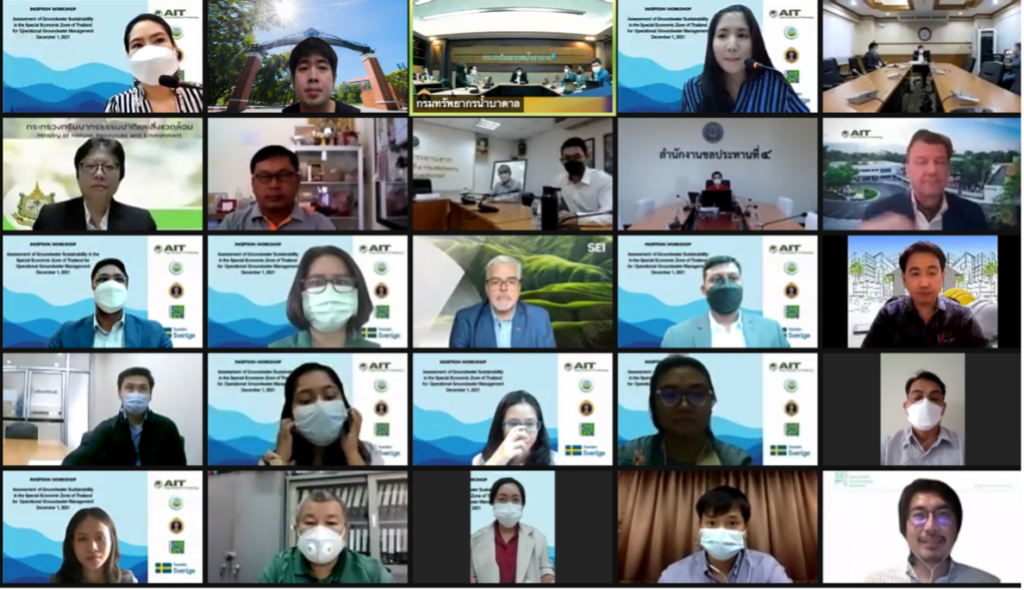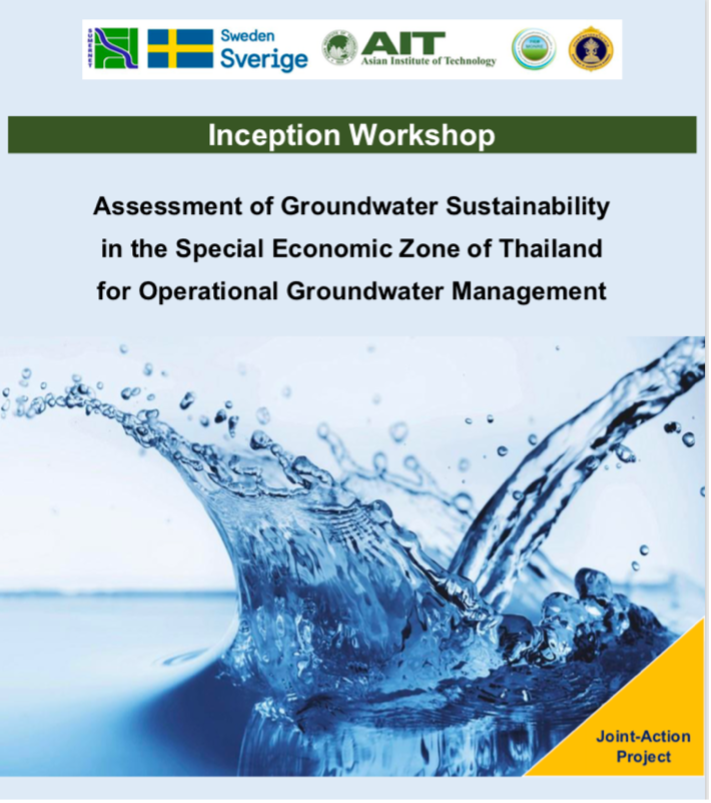By Nitipol Kiravanich

December 1st, 2021 — The Asian Institute of Technology (AIT), led by Prof. Sangam Shrestha, and Department of Groundwater Resources (DGR), Thailand, jointly held an inception workshop on “Assessment of Groundwater Sustainability in the Special Economic Zone of Thailand for Operational Groundwater Management” to gather feedback and comments from various stakeholders. The workshop is part of the Groundwater Infrastructure Sustainability Assessment (GISA) project supported by the Stockholm Environment Institute (SEI).
Thailand’s Special Economic Zones (SEZs) -- in 10 provinces including Tak, Mukdahan, Sa Kaeo, Trat, Songkhla, Chiang Rai, Nong Khai, Nakorn Phanom, Kanchanaburi, and Narathiwat -- are located in strategic location in proximity to ASEAN’s emerging economies. While it is clear that SEZs contribute to the economic growth of the country, it is less clear how to mitigate the environmental impacts, especially on the groundwater, as a result of the economic activities’ resources consumption.
To tackle this, the inception workshop was organized for concerning parties from the public, private and governmental sectors to share their opinions, comments and suggestions over the scope, methods, and indicators of the “Groundwater Sustainability Infrastructure Index” or GSII. Conflicts may arise, as groundwater resources may be competed for in the near future, if proper policies are not put in place. To inform policy, AIT Prof. Sangam Shrestha, GISA Project Lead, explained that the project aims to develop groundwater sustainability infrastructure index to identify how different sectors use the groundwater and to provide recommendations for improved institutional and policy framework for operational groundwater development and management in SEZs.
Speaking of the benefits of the project, Deputy Permanent Secretary of the Ministry of Natural Resources and Environment (MoNRE), Dr. Oranuj Lorphensri pointed to how the project would assist the Thai government in improving their practice and decision making on groundwater resources development and management in SEZs. Similarly, Dr. Alin Chintraruck, Head of International Relations Unit at DGR, explained that the project would address the challenges in groundwater sustainability, improve insights into groundwater situation in SEZs, and fill the gap in policy making and governance.
Starting with Tak SEZ, AIT Dean of School of Engineering and Technology Prof. Dieter Trau said the project could be seen as a pilot project, serving as a benchmark for identifying sustainable guidelines and policies, where the outcomes could be replicated and apply in emerging economic zones. The SEI Director Dr. Niall O´Connor highlighted the importance of bridging science, policies, and practices in the best manner for a sustainable future – stating, “We believe credible research to help inform policy decision makers under best practices are the best way to go forward, and by working with many partners around the world will enable this to happen.”
The inception workshop is a part of a two-year joint action project that will apply the Groundwater Sustainable Infrastructure Index (GSII), funded by Stockholm Environment Institute (SEI) under the Sustainable Mekong Research Network (SUMERNET).

SUMERNET is an initiative for research and policy engagement bringing together research partners working on sustainable development in the countries of the Mekong Region comprised of Cambodia, China, Lao PDR, Myanmar, Thailand, and Vietnam.
More on SUMERNET: https://www.sumernet.org/

